- Home
- Jamie McGuire
Among Monsters: A Red Hill Novella Page 2
Among Monsters: A Red Hill Novella Read online
Page 2
“Wow,” I said.
He looked like a soldier instead of a firefighter.
“Let’s go,” Dad responded. He guided me out the door and down the steps with a hand on my shoulder.
His white Chevy Tahoe was still running with the windows rolled up when we reached his place in line. Halle wasn’t panicked at all when I opened the front passenger door. She was sitting behind me in the middle row in one of the two captain’s chairs with her seat belt fastened and her hands folded tightly in her lap. The back bench seat had a case of bottled waters and several white plastic sacks full of cans.
After climbing into my seat, I put my textbook and binder on the floorboard. “Hey, Halle,” I said, trying to sound cheerful. I turned around to smile at her only briefly before buckling in.
Dad jumped into his seat and pulled the gear into drive. Pulling away from the curb, he asked, “You buckled in, Pop Can?”
He wasn’t talking to me. One of the other firefighters had once said that Halle was no bigger than a pop can, and it had stuck. Born five weeks early, she was pretty small for her age. She had worn toddler-sized clothes until she was in kindergarten. Dad was half an inch shorter than Mom, so we always teased Halle for being petite like him. Dad didn’t find that funny, so he stayed with Pop Can.
Halle tugged on her seat belt and then wiped her nose with the back of her hand.
Dad rounded a corner quickly, and my shoulder bounced off the door.
“Sorry. I’m trying to get out of town. How was your day?” Dad asked with a tinge of nervousness in his voice.
I raised an eyebrow at him. “What’s wrong with Halle? Why is she being so quiet?”
“Some of the parents came into the school, causing a fuss. She’s still upset.” He kept his eyes on the road.
“Did you tell Mom you were picking us up early?”
“I called the hospital. I couldn’t get through.”
“Did you call her cell phone?” I asked.
He made a face. “She doesn’t like it when I call her cell phone when she’s at work. She said to only do it when it’s an emergency.”
“An epidemic isn’t an emergency?”
“If I call her cell phone, she’ll think something happened to one of you. I’m not going to scare her. Your grandma said she called her, and your mom was in surgery. I’m sure she’ll call when she can.”
I pulled out my phone and began to type out a text.
“What are you doing?” Dad snapped.
“I’m at least going to let her know where we are and that we’re okay.”
“Put it away, Jenna. I told you, she’s in surgery. I don’t want to hear it from her later.”
“She said I could text her if it’s important.”
“Do you want her to think you’re hurt?”
I huffed and looked out the window. I watched the buildings slowly spread out until there was only farmland and refineries. We passed over the interstate toward the toll road, and I was about to ask Dad where he was going, but it didn’t take long for me to figure it out. The traffic both north and south on I-35 was still flowing, but I’d never seen it that busy before. Dad was probably going to Anderson from the south through the old Tempton highway.
Within fifteen minutes, Dad turned north, confirming my suspicion. Another fifteen minutes later, we were in Anderson’s city limits. We passed the high school and the baseball fields, the fairgrounds, and then downtown.
“Where are we going?” I asked.
I glanced back at Halle. She still hadn’t said a word, which was completely abnormal. She usually barely took a breath when we were in the car and fighting for airtime.
“To the armory,” he answered.
“Still?” I asked. “I was kind of hoping we’d go home and watch the news.”
“Why do you think I’ve left the radio off?” he said. “It’s not a good idea.” He peeked at the rearview mirror and winked at Halle. “No need to scare your sister.”
“She’s already scared.”
He turned right at the northeast corner of town. Three blocks before the armory, the parking lots of the surrounding buildings were nearly full. The haphazard parking and packed lots looked like the fairgrounds would during fair week, but we were on the wrong side of town.
“There’s so many cars,” I said.
“A lot more than when I left,” Dad said.
“All these people have come to the armory because they think it’s safer to be near Governor Bellmon, don’t they?”
“He’s called in the National Guard just to be safe,” Dad said. “They should be here soon.”
“I’m not sure if that’s comforting or not.”
Dad patted my leg. “It’s just a precaution. I won’t let anything happen to you. Hear that, Halle? You’re with Daddy. Nothin’ to worry about.”
Halle didn’t answer.
Dad found a parking spot, and we each held one of Halle’s hands as we crossed the busy street. It seemed the whole county was driving toward the armory. Dad took us in through the armory’s back entrance, and we found a group of firefighters looking formal in their dress blues. Dad joined them, blending in.
“Hey, kiddo,” Jason Sneed said with a wink. He was blond, blue-eyed, young, and charming.
I’d had a crush on him since I was four. I’d even told him once that I was going to marry him one day, and I’d believed it until he’d gotten engaged two years later.
“Hey,” I replied.
“You doing okay?” he said quietly.
“So far. Heard anything new?” I asked.
“It’s spread along the East Coast. But we’re in the middle of nowhere. Nothing ever comes this far. The military is containing it. Governor Bellmon is in contact with some US senators, and they’re confident.”
“That’s what he’s saying anyway,” I grumbled.
Jason narrowed his eyes, but his small smile betrayed him. “So young yet so cynical.”
The governor was elevated above the crowd on a makeshift stage in the center of the room, speaking comforting words into a microphone, as people yelled questions and concerns.
“I hear what you’re saying. I’m not saying not to worry. With words like epidemic and now pandemic being thrown around…it’s a worrisome situation. But we’re safe here, and that’s what we need to focus on now. Panic won’t solve anything.”
“Is it the terrorists?” someone yelled.
“No,” the governor said, amused. “I’ve been told it’s a virus.”
“What kind of virus?” someone else asked.
“We’re not exactly sure yet,” Governor Bellmon said.
He was being honest. I’d give him that.
“There are reports in Mississippi!” a man said, holding up his phone.
The crowd erupted, and the governor leaned over to whisper something in a man’s ear. He was dressed in a suit, and he nodded before leaving the stage immediately. He walked over to Tom, the fire chief, just feet away from where we stood. Tom listened intently to the man in the suit and then waved to his men to come closer.
“The governor has ordered we gather water and supplies. We’re going into disaster mode, guys. I know most of you came in for the photo op, but you’re getting called in. Let’s get going.”
The men gave a nod and turned for the back door. Dad looked around and caught Tom as he was making his way toward the police chief and the mayor.
“Tom, I’ve got my little girls here,” Dad said.
Tom looked down at Halle and me and then nodded, giving Dad an unspoken pass, before he continued on.
“Now what?” I asked.
“We wait for the guys to get back and help as best as we can.” He leaned in, whispering in my ear, “Do me a favor, Jenna. Stay off your phone. I don’t want any of the stuff on the news to scare your sister.”
I felt a small hand grip mine. I knelt down beside Halle. Her stringy blonde hair was a ratty mess as it always was after school. Her clothes were misma
tched, and her heather-gray hoodie jacket was tied around her waist. She pushed up her black-rimmed glasses, her ice-blue eyes glistening.
We couldn’t look more different—Halle with her light-blue eyes and tiny frame and me with my honey-brown irises and chestnut hair. I was always athletic, always pushing against boundaries, vying for independence, even when I was little. Halle just always seemed so fragile.
As if she could hear my thoughts and personify them, she squeaked her next words, “I want Mom.”
“I bet she’ll head this way as soon as she gets off work. She’ll want to be here with us,” I said.
Halle shook her head. “She won’t come here, Jenna. She’ll go to our place.”
“Red Hill? That’s just if something bad happens, silly.”
Halle looked around at the roomful of frightened people. “This is bad, Jenna.”
I stood and squeezed her to my side.
THE CONCRETE WALLS AND FLOOR OF THE ARMORY seemed so much smaller than when I had been here for the National Guard’s open house the year before. It was just one giant room, but even back then, when the huge military vehicles had been parked inside, the space had seemed bigger. Now, the vehicles were parked outside, but with so many people packed inside, it made me feel a little claustrophobic. Still, as the news reports worsened and the news that the governor was in Anderson, more people were finding their way to the aging brick building.
Dad was helping the other firefighters pass out water and blankets, and they were also plugging in fans to every outlet they could find. Governor Bellmon was standing on the stage, speaking words of comfort, while holding out his hands between moments of wiping the sweat dripping from his brow. He looked like a doomsday preacher during an outdoor revival, only we were crammed inside a run-down building that was older than my dad.
I couldn’t imagine how hard it was to be responsible for keeping so many people calm in such a frightening situation. I was glad it was him and not me.
“I can’t breathe,” Halle said.
Her moist skin made her glasses slip down her nose so often that she’d resorted to pushing them atop her head like Mom would do with her sunglasses. When she tried to focus, her left eye would turn in.
I patted her nose with the bottom of my blouse and lowered her glasses in place. “Your crazy eye isn’t behaving,” I said with a wink.
Being premature, Halle had been sick a lot as a child. Mom had said that Halle coming early explained why she was the only one with glasses in our immediate family and why she was so much smaller than everyone in her class. Mom would also insist that Halle was as strong as any of us and to definitely never, ever give Halle a complex about her lazy eye. Mom would say all of this while babying Halle, of course. But when her glasses or lazy eye were mentioned, we would rarely make a big deal about it, and if we did, it was to proclaim how weird it was that one of her classmates had even noticed. We’d call it her crazy eye instead.
Halle pulled her mouth to the side. “I’m hungry.”
I led her over to a table with laundry baskets full of snack food. I picked out four small bags of potato chips and put four bottles of water in Halle’s backpack. We walked together through a rickety wooden door to a grassy yard surrounded by a tall fence, the ominous kind with curly barbed wire on top. A few rusted Humvees and military trucks were parked there. I even noticed a tank that I was sure was just for show.
Some of the other townspeople were grouped together, discussing theories on the origin of the virus and making phone calls. Halle picked out a spot in the corner of the yard, and we sat down in the grass, already green from the overabundance of spring rain.
Just as I thought about texting Chloe, Halle hopped up. “My pants are wet!”
I jumped up, too, checking my backside for the inevitable damp spot. I sighed. “Sorry. I’ll find something for us to sit on.”
I walked back into the armory and found several packages of plastic table covers. I took a package and opened it with my teeth while rejoining Halle outside.
“Here,” I said, spreading the plastic on the ground. “Our own little picnic.”
“I’m cold,” Halle whined.
“It’s cooling off,” I agreed. “And you were sweating inside. That’ll make you colder faster.”
She untied the sleeves of her jacket wrapped around her waist and put it on. “Sweat will?” she asked, confused.
I shrugged and zipped up her jacket. “That’s kind of the point.”
Halle munched on her chips as we watched more vehicles drive down Sixth Street. The drivers seemed to be searching for places to park.
“Why are so many people coming here?”
“Probably because the governor is here, and they think it must be safe.”
“Is it?”
“I don’t know,” I said. “The cops and firefighters are here, and the National Guard is coming. I’d say we’re safer than most.”
That brought Halle a moment of comfort, but it only lasted a few seconds before she frowned again. “I want Mom.”
I pressed my lips together. “Me, too.”
Several young men in hunter’s camouflage came through the wooden door and out to the yard, yelling at people to get back inside the armory. I grabbed Halle and pulled her out of the way before wadding up our tablecloth and stuffing it into her backpack.
Dad’s voice called our names from inside, and then he appeared, rushing over to us. “Where have you been?” he said, angry.
“Halle was hungry,” I said.
His attention was already on the men. Some of them were starting up the Humvees, and others were opening the oversized gate at the end of the yard.
“What are they doing?” I asked.
Dad turned away from Halle and spoke softly, “There are reports of the virus in our state. The National Guard isn’t coming. The governor gave those guys permission to take the military vehicles to the roads running in and out of town to make sure no one who’s infected gets in.”
Women and children began to cry. Voices got much louder as the Humvees pulled out of the gate, and the young men chained it shut again. Other men rushed to their own trucks, heading to the highways leading out of town.
“Have you called Mom yet?” I asked. “What about Mom? Did you tell them to let her in?”
Dad was in a deep conversation with Tom.
“Dad? Dad!”
“Not now, Jenna.”
“Have you talked to Mom?” I said, unrelenting.
He stopped his conversation, breathed out a controlled but frustrated sigh, and shook his head. “Your grandma said she talked to your mom earlier. She was still in surgery. She’s busy.”
I pulled out my phone. It was almost time for her to get off work. Chloe had been out of school for over an hour, and she hadn’t texted me yet.
“I’m calling her.”
“Jenna, don’t.”
“I’m calling her!”
Halle lifted her glasses and wiped her eyes before watching me. I touched the screen and then held the phone to my ear. A series of beeps came through the speaker. I tried again.
“Can’t get through?” Dad asked, unable to hide the alarm in his voice.
Once the beeps started again, I hit End. “You should have let me try earlier!”
“Jenna, calm down,” Dad said.
I tried texting Chloe. A minute passed, and then a little red icon popped up next to my message showing that it hadn’t gone through. After a brief moment of panic, I noticed the worried look on Halle’s face, so I swallowed back my fear.
Dad put his hand on my shoulder. “She’ll be here, Jenna. This is the first place she’ll come when she leaves the hospital.”
I held Halle against my side. “Hear that? We’ll see her in an hour or two.”
Halle touched her forehead to my stomach and shook her head.
I knelt down, waiting until Halle’s eyes met mine. “She will, and she won’t let anything stop her.”
Halle hu
gged me, and Dad hugged us both before coaxing us back into the building. Instantly, the air was hot and stale. The tension was thicker, and Halle felt it, too. Something twinged in my chest as she squeezed my hand tight.
The governor wiped his brow with a handkerchief and then shoved it back into his breast pocket. “We’ve got three dozen men on patrol. They’re experienced hunters or marksmen. Rest assured that we’ve got Anderson locked down.”
“I’ve got family who are trying to get home!” a woman shouted.
After more yelling, the governor motioned for everyone to settle down. “The infection has spread to our state. If they’re not infected, they’ll be allowed in. But I’ve heard several reports that the interstate has shut down.”
The crowd exploded again.
I clicked on my phone to check the time. Mom should be halfway to Anderson by now.
Commotion from the yard interrupted the shouting citizens inside. Several people rushed out to see what it was, and then more yelling ensued. The door was left open, and a series of popping noises, like fireworks, echoed from down the road.
“Stay here,” Dad said, leaving us just inside the door before stepping out into the yard.
“What is that?”
“Is that gunfire?”
“The boys are shooting!”
“What are they shooting at?”
Wailing weaved together and formed a symphony of fear and anguish. It was stifling and stuffy inside the building and chilly outside. The sun was lower in the sky, and I knew it would only get colder.
“Dad?” I said when he returned. “Do we have to stay here?”
“The chief wants us here while people are choosing to stay here.”
“I didn’t bring my coat.”
“You’ve got one at the house.” He patted my back while looking past me to warily scan the yard.
“Halle only has her jacket. Maybe we should go to the house and get some of our things?”
He nodded. “We will.”
“I don’t want to spend the night here.”
“Me either,” Halle whimpered.
Dad glanced around the room. “People are getting sick fast. It’s probably not a good idea to be in here with all these people.”

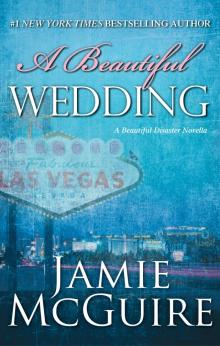 A Beautiful Wedding
A Beautiful Wedding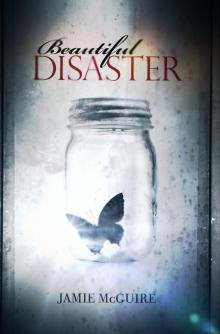 Beautiful Disaster
Beautiful Disaster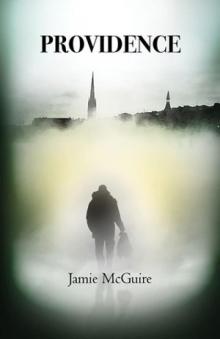 Providence
Providence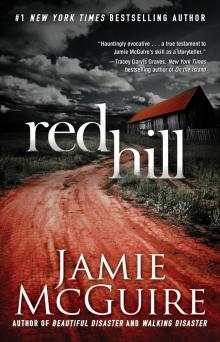 Red Hill
Red Hill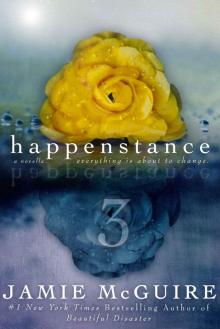 Happenstance 3
Happenstance 3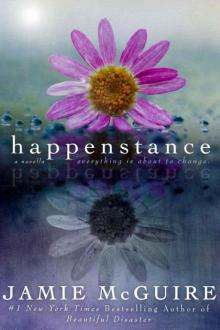 Happenstance 1
Happenstance 1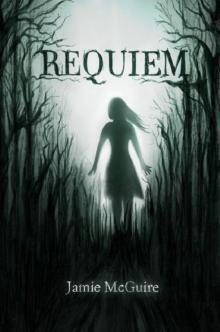 Requiem
Requiem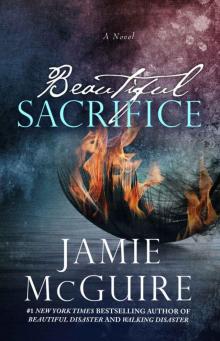 Beautiful Sacrifice
Beautiful Sacrifice Sins of the Innocent
Sins of the Innocent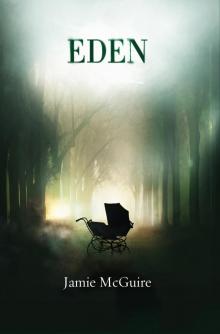 Eden
Eden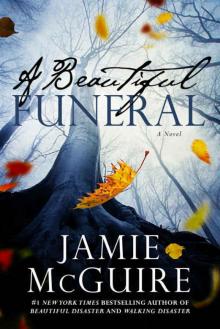 A Beautiful Funeral
A Beautiful Funeral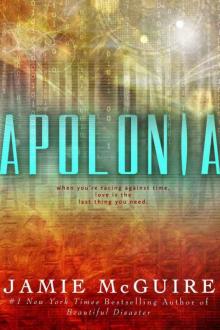 Apolonia
Apolonia Beautiful Oblivion
Beautiful Oblivion Beautiful Redemption
Beautiful Redemption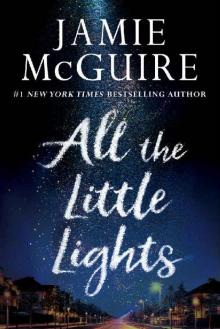 All the Little Lights
All the Little Lights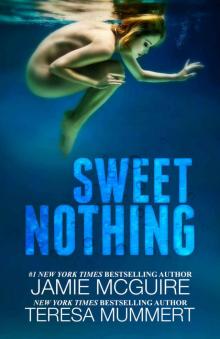 Sweet Nothing
Sweet Nothing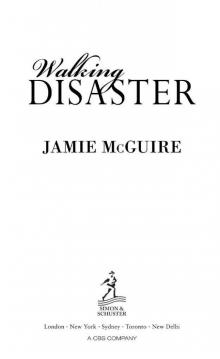 Walking Disaster
Walking Disaster Endlessly Beautiful 1.5
Endlessly Beautiful 1.5 Beautiful Burn
Beautiful Burn Among Monsters
Among Monsters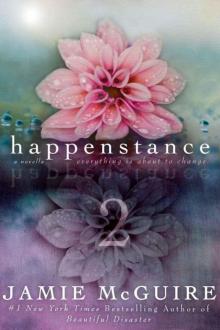 Happenstance 2
Happenstance 2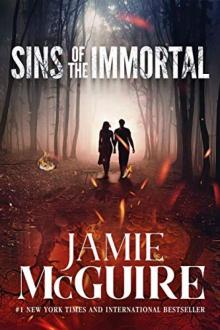 Sins of the Immortal
Sins of the Immortal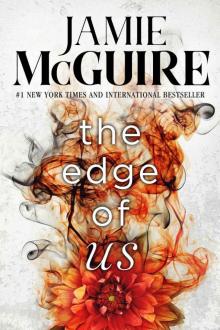 The Edge of Us (Crash and Burn Book 2)
The Edge of Us (Crash and Burn Book 2)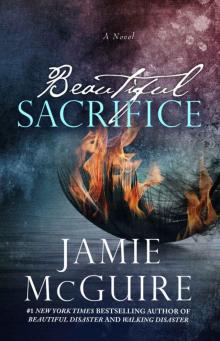 Beautiful Sacrifice (Maddox Brothers #3)
Beautiful Sacrifice (Maddox Brothers #3)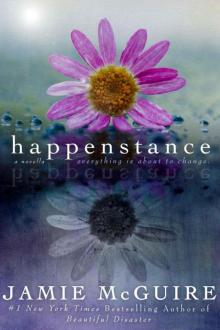 Happenstance
Happenstance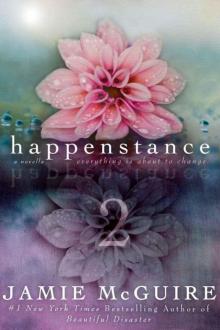 Happenstance: Part Two (Happenstance #2)
Happenstance: Part Two (Happenstance #2) Sins of the Innocent: A Novella
Sins of the Innocent: A Novella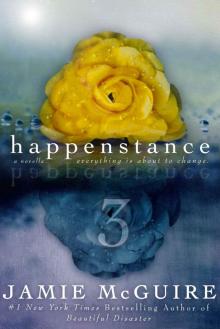 Happenstance: A Novella Series: Part Three
Happenstance: A Novella Series: Part Three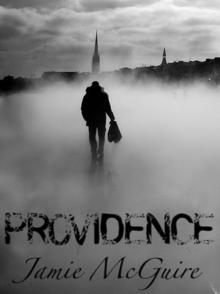 Providence p-1
Providence p-1 Beautiful Redemption (Maddox Brothers #2)
Beautiful Redemption (Maddox Brothers #2) Eden p-3
Eden p-3 Endlessly Beautiful (Beautiful #1.3)
Endlessly Beautiful (Beautiful #1.3)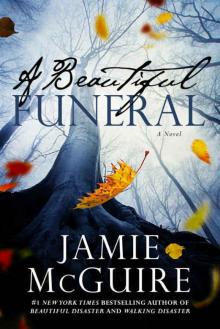 A Beautiful Funeral: A Novel (Maddox Brothers Book 5)
A Beautiful Funeral: A Novel (Maddox Brothers Book 5)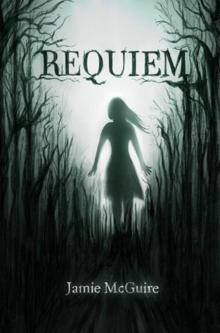 Requiem p-2
Requiem p-2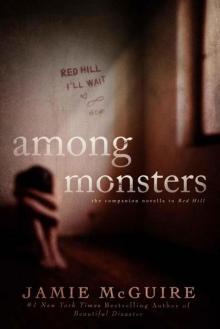 Among Monsters: A Red Hill Novella
Among Monsters: A Red Hill Novella Something Beautiful (Beautiful #3)
Something Beautiful (Beautiful #3) Beautiful Burn (Maddox Brothers #4)
Beautiful Burn (Maddox Brothers #4)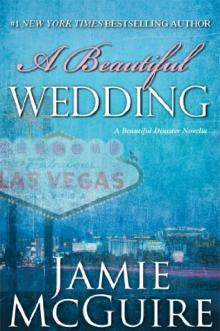 A Beautiful Wedding: A Novella
A Beautiful Wedding: A Novella